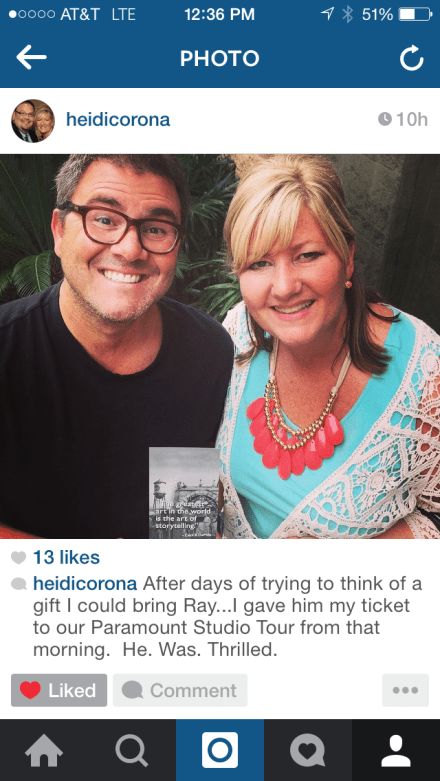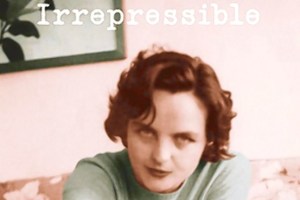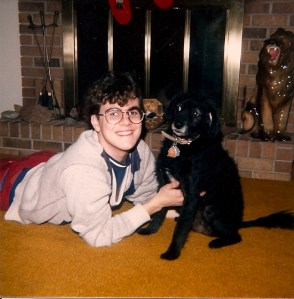
A couple of days ago, I spent the afternoon with two friends from Bible college, Heidi and Greg, who were visiting Los Angeles with their teenage children. We walked around Hollywood Boulevard and the Chinese Theatre and eventually made our way over to the La Brea Tar Pits. It was a joy to catch up with old friends and show them around my city.
Now, I know how my blog posts have a tendency to unfold. I tell a story and I say, either the people I am talking about are in the wrong or I’m in the wrong or we were both in the wrong. I’ve read the back log, I know the pattern. And especially when I write about any interaction between the gays and the conservative Christian community, I have a history of pointing fingers. Sometimes my diatribes are late night rants that I second guess in the morning. Other times, it’s something more thoughtful, a gentle nudge of “hey, let’s just look at this, how can we do better?”
Well, let me start by saying, that is not the nature of this particular blog. The hours that we spent together were lovely. I never felt a judgement from Heidi or Greg or their children about my life. The words “lifestyle choice” never came up.
When we met, they had just come from a tour of Paramount Studios and they told me they got to meet Dot Marie Jones from Glee on the lot and Greg took a picture (or 3) with her. I thought to myself, good for them for wanting to take a picture with not only an out lesbian, but also someone playing a transgendered character on television. I honestly don’t know that every conservative Christian would jump at that photo op, but of course, it honestly moved me that these old friends did.
At one point in our afternoon, Heidi pulled out her ticket from the tour. She wanted to give the ticket to me because the quote on the ticket, credited to Cecil B.Demille, said, “The greatest art in the world is the art of storytelling.” There was a bit of awkwardness because I wasn’t really sure she was giving me the ticket or just showing it to me. And then she wasn’t sure if I really wanted the ticket. And then the ticket became a running joke throughout the rest of our afternoon, a punchline really.
Heidi was one of my best friends in college. I know this won’t translate, how could it, but Heidi and another friend Sheri and I once went to a weekend conference to Lake of the Ozarks (as glamorous as it sounds) where the entire time we kept singing this three part harmony song called “I don’t know.” All we did was sing “I don’t know” over and over and over again. Like Michael Row the Boat Ashore with significantly less lyrics. I KNOW, I told you the story wouldn’t translate but it made us laugh all weekend. It made us laugh for weeks and months and years after, too.
While I had friends in high school, I never felt like I was part of a tribe until I went to Bible college. I just wasn’t skilled at making friends until my time at Ozark. And even though I don’t see life exactly the same way as most of my former classmates do, I still feel a connection to them.
Tuesday night, even from the moment we said our goodbyes and our cars took us in opposing directions, I felt a little sad. I couldn’t quite name it, we’d had a great time, laughed a lot. There was still a connection, I concluded. We still have things in common. They are still the loving people I remember and I could tell, they are raising their teenagers to be loving, interesting, sharp-witted adults, too. I didn’t feel like their icky gay friend. (Note to self, HBO series pitch or perhaps just a great Katy Perry song: My Icky Gay Friend.)
So, if they didn’t do anything wrong and FOR ONCE, I didn’t do anything wrong, why did I feel melancholy?
It has occurred to me before, that I have spent my entire life feeling I need to explain myself. When I was a fervent, Evangelical high school and college student, there were always people who asked, “Why are you such a Bible beater?” When I came out of the closet, for years, I had people question why I would choose to be gay or choose to live the gay lifestyle. Even still, I get asked versions of that same question. I assume that, to some extent, I will contend with that for the rest of my days.
As I drove home, and later that night, I imagined the conversation Heidi and Greg might have had about me. That it was great to see me (I hope), that I’m not so gray or wrinkled or overweight that I’m no longer recognizable as the Ray they remember. But also, I imagined a sigh, and then, “He’s so special, I just wish he still loved Jesus.” In my mind, I did not imagine a judgement, merely a wish that I might still be a part of the club, or even better, the tribe, they are still a part of.
As much as we will always have things in common, there will also, always, be differences. And that’s okay. Really, it is.
I’ve thought about that Paramount Studios tour ticket a lot since Tuesday. I did keep it. It sits on my desk now and when I look at it, I smile. This morning I saw that Heidi posted a pic of us with it, joking about my tepid reaction, and it tickled me. Nearly 30 years later, she still makes me laugh.
I always wonder how people see me, too much so. I know. But I have to remember to think it without overthinking it. That maybe Heidi doesn’t think of me as gay or Christian or not Christian or lost or found, forgiven or I don’t know. Maybe she just thinks of me as a storyteller.
And she is part of my story, as I am part of hers.






